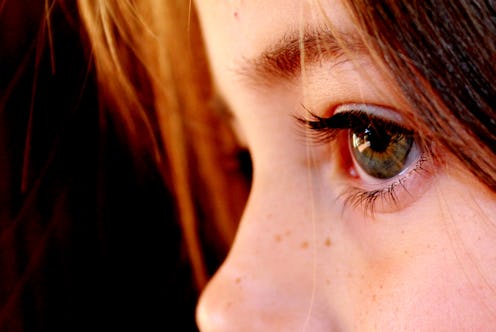Life
When Kids First Feel The Effect Of Weight-Shaming

A study published Wednesday in Child Development reveals that weight shaming affects children as early as first grade. Kids as young as six years old — six years old — face isolation and rejection from peers due to their weight. Although previous research on children's attitudes toward obesity has focused on hypothetical cases, this study delved into the lives of real obese children — and the portrait it paints of how these kids are treated by their peers is heartbreaking. Weight shaming at a young age can have serious consequences; the study found that children shunned for being obese face increased rates of depression and are more likely to eventually drop out of school.
The team of researchers, led by Amanda W. Harrist, a professor of child development at Oklahoma State University, studied 1,164 first graders at 29 schools in rural Oklahoma; most of the subjects were white and from low-income families. The researchers classified kids according to their body-mass index (BMI), into categories including “healthy weight,” “overweight,” “obese,” and “severely obese.” (Notably, BMI has been shown to be an imperfect indicator of overall health).
The team found that overweight children faced teasing, isolation, and rejection from their peers, and that the severity of these behaviors worsened for more overweight targets. For example, severely obese children often dealt with worse teasing than kids who were simply overweight. Obese children seem to be frequently ignored; when their peers were asked to name their favorite and least favorite playmates, the obese kids simply weren’t named. That’s bad enough, but it gets worse: Severely obese children faced outright rejection; peers regularly named them as the children they liked to play with the least.
Unsurprisingly, these negative, isolating experiences have serious, detrimental psychological effects on obese children. “Severe obesity is a clear psychosocial risk for children, even as early as 6 years old,” explained Harrist in a press release. “Children who are ostracized, as occurred with the severely overweight children in our study, suffer great harm, with feelings of loneliness, depression, and aggression, and these children are more likely to skip school and drop out later.” Obese and severely obese children also tend to have more physical problems than overweight kids, which the researchers suggest may be due to psychological stress.
In addition to causing emotional and psychological strain, the shaming and social isolation that obese children experience may in the long run make their weight issues worse. Depression may lead to binge eating, for instance, and obese children may steer clear of potentially beneficial physical play with other kids, for fear of being ridiculed.
One thing I find particularly depressing about this study (besides, you know, all of it) is that children learn these negative attitudes from the people and culture around them. Kids don’t pop out of the womb possessing an impulse to body shame. They learn to shame and reject others as they grow up — from parents and other adults, other children, the media, and from a broader culture in which fat shaming is a deeply embedded and widely accepted tradition. How profoundly messed up is it that children who are just learning to read have already been trained to ridicule and reject people because of their weight? (Answer: Very).
The researchers suggests that it’s up to adults to stop body shaming among children. “Intervention or prevention efforts should begin early and target peer relationships,” said study co-author Glade L. Topham, from Oklahoma State University. “Interventions addressing the behavior of peer groups can limit exclusion and teasing, and help students form friendships.”
Images: Dominique Feldwick-Davis/Pexels; Jake Ingle/Unsplash